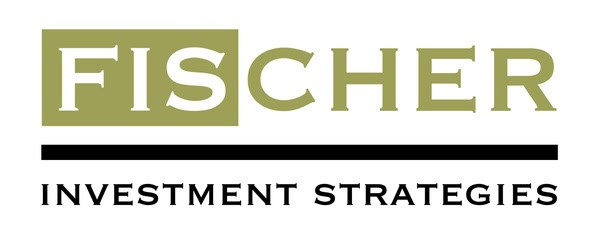Technology professionals have to navigate a financial situation that is starkly different from many other professionals. As a result, their financial planning journey requires a highly adaptable approach to stay ahead.
This article provides in-depth insights and practical strategies specifically tailored for individuals in the tech sector. It serves as a guide on how to successfully create a financial plan that is able to thrive in a field where change is the only constant.
Why Financial Planning for Technology Professionals is Unique
For tech professionals, personalized financial strategies are a must. One key reason is equity compensation. Many tech employers offer company stock options or restricted stock units as part of their compensation packages. This form of payment, though potentially lucrative, introduces complexity in financial planning. Equity can significantly fluctuate in value requiring a more dynamic approach to managing finances.
The variety of benefits beyond equity compensation also need to be accounted for. Employee benefits like health insurance, retirement plans, etc. can vary from one organization to the next. Understanding and optimizing these benefits is another important consideration of financial planning for tech professionals.
Furthermore, tech professionals also experience distinct challenges and opportunities over the course of their careers. The space is known for its rapid advancements, employment volatility, and substantial salary increases. As a result, tech professionals need a financial plan that not only aligns with their immediate and long-term goals, but is also flexible enough to withstand the dramatic changes that may come their way.
What is Involved with Financial Planning for Technology Professionals
The first step of financial planning for tech professionals usually involves a financial planner assessing the professional’s current financial situation. This assessment includes evaluating income, debts, assets, and investments. It’s necessary to understand where the professional stands financially to create an effective plan.
After the initial assessment, the process moves on to setting clear, achievable financial goals. These could range from short-term objectives like paying off debt to longer-range goals like fully funding a child’s education account.
Budgeting is an important component in the financial planning process which helps move people from their present circumstances toward their ideal future. It involves allocating funds efficiently to meet daily needs while also working towards the short and long-term objectives. Effective budgeting ensures that expenses, especially those related to lifestyle changes, are kept in check.
With clear goals and a budget in place, your financial plan can look into other areas such as investment management, retirement planning, tax planning, and estate planning. While these areas are each complex and require separate attention, they will all come together to form a single, comprehensive financial plan.
Investment Management for Technology Professionals
Investment management centers around building and maintaining an investment portfolio that aligns with individual financial goals and risk tolerances. Each individual in the tech industry has a unique risk profile, shaped by factors like career stage, income stability, and personal financial goals that impact investment decisions.
Someone at the start of their tech career might be more inclined to take risks for higher returns, while someone nearing retirement may prefer more stable, lower-risk investments. However, given the dynamic nature of the tech industry, the process of developing the proper portfolio can be more challenging.
A key part of investment management is portfolio calibration. This involves adjusting investments to ensure they remain in sync with changing circumstances and objectives. As tech professionals progress in their careers, their financial goals and risk capacity may also evolve. A recalibration ensures that their investments continue to support these shifts.
Ongoing reviews and monitoring allow for identifying when a recalibration is necessary. Investment management isn’t a set-and-forget process. With prudent investment management, those working in tech can effectively grow and protect their wealth.
Comprehensive Tax Planning for Technology Professionals
Comprehensive tax planning involves strategizing to minimize the tax impact over one’s lifetime. This is central to a tech professional’s financial planning as these professionals often face complex tax situations due to their diverse income sources (e.g. salaries, bonuses, stock options, and investments).
A foundational part of comprehensive tax planning is understanding and utilizing available tax deductions and credits. Financial advisors can assist tech professionals in identifying these opportunities. They ensure that individuals take full advantage of tax-saving strategies, which can vary significantly based on their income and investment types.
Another important element of tax planning is the strategic planning of income and investments. This involves timing the realization of income and gains to minimize tax liabilities. Managing the sale of company stock, for example, requires careful consideration to optimize tax outcomes.
Moreover, tax planning integrates with other financial areas like retirement and estate planning. For instance, the choice of retirement accounts (like Roth IRAs vs. traditional IRAs) impacts both future tax liabilities and retirement income. Similarly, estate planning strategies, such as setting up trusts or charitable donations, can be structured to provide tax benefits.
Comprehensive tax planning is not just about yearly tax returns. It’s a strategic approach that aligns with broader financial goals and evolves with career progressions. Effective tax planning ensures that tech professionals maximize their wealth by minimizing tax burdens throughout their careers and through retirement.
Retirement Planning for Technology Professionals
Retirement planning for technology professionals involves making informed choices about various retirement accounts and savings plans. The primary objective is to create a post-work income that will last and support a given professional’s ideal lifestyle.
Selecting the right type of retirement account is important. Choices like a Traditional IRA or a Roth IRA have different tax implications and benefits. Contributions to a Traditional IRA are tax-deductible, advantageous for individuals in higher tax brackets. On the other hand, a Roth IRA ensures tax-exempt growth and distributions, suitable for individuals expecting increased tax rates down the line.
The focus should also be on maximizing contributions to employer-sponsored retirement plans. Many tech companies offer 401(k) plans, some with matching contributions. Taking full advantage of these matches is important, as it’s essentially free money contributing to your life after work. Additionally, tech professionals may want to consider other savings vehicles, like health savings accounts (HSAs), which provide numerous tax advantages and can be used to cover medical expenses (and non-medical expenses after turning 65) in retirement.
Estate Planning for Technology Professionals
Estate planning ensures that assets are distributed according to a person’s wishes and provides peace of mind for both them and their loved ones. Given the potentially complex and substantial nature of their estates, tech professionals may need to explore a wide variety of options to preserve their wealth for future generations.
Common considerations include the creation of a will or trust. This legal documentation specifies how assets should be distributed and can also include directives for the guardianship of minor children. For tech professionals with significant assets, including stocks, intellectual property, and real estate, a trust can offer more control and privacy than a will. It’s crucial to ensure these documents are up-to-date, reflecting current assets and personal situations.
Life insurance may also play a role in estate planning for some individuals. Life insurance will provide financial security for dependents, ensuring they are taken care of in the event of an unforeseen death. The amount of coverage should be carefully considered, taking into account current earnings, potential future income, and existing debts. In many cases, tech professionals opt for policies that go beyond basic needs, protecting a substantial financial legacy for their beneficiaries.
In addition to these key elements, estate planning also involves putting powers of attorney in place along with healthcare directives. These ensure that personal and medical decisions are made according to their preferences if they are incapacitated. For tech professionals, whose careers often involve significant risks and stress, having these safeguards in place is vital.
Lastly, like all other components of financial planning for tech professionals, estate planning is not static. It requires ongoing attention and adaptation to changes in personal circumstances, laws, and financial situations.
Work with a Financial Advisor that can help.
At Fischer Investment Strategies, our team is dedicated to providing comprehensive financial planning that aligns with your unique professional trajectory. Whether it’s managing your investment portfolio, devising tax strategies to optimize your earnings, or planning for a secure retirement, we are here to guide you every step of the way. We aim to ensure that your financial plan is not just a roadmap for today, but a flexible strategy that adapts to your changing life and career circumstances.
Take the first step towards a tailored financial future. Reach out today and let’s start crafting a plan that works for you. You can call us directly at our Westlake office at (805) 418-7686, or our San Clemente office at (949) 433-7768. Schedule a complimentary consultation at a time that works best for you. Let’s work together to turn your financial goals into reality.
This commentary reflects the personal opinions, viewpoints and analyses of the Fischer Investment Strategies, LLC employees providing such comments, and should not be regarded as a description of advisory services provided by Fischer Investment Strategies, LLC or performance returns of any Fischer Investment Strategies, LLC client. The views reflected in the commentary are subject to change at any time without notice. Nothing in this commentary constitutes investment advice, performance data or any recommendation that any particular security, portfolio of securities, transaction or investment strategy is suitable for any specific person. Any mention of a particular security and related performance data is not a recommendation to buy or sell that security. Fischer Investment Strategies, LLC manages its clients’ accounts using a variety of investment techniques and strategies, which are not necessarily discussed in the commentary. Investments in securities involve the risk of loss. Past performance is no guarantee of future results.
Ted Fischer

Financial Advisor at Fischer Investment Strategies | Website
Ted Fischer is a Fee-Only Certified Financial Planner® & fiduciary, and the founder of Fischer Investment Strategies.
Drawing from more than 25 years of experience in the financial services industry, Ted’s expertise includes retirement planning, investment analysis, tax planning, estate planning, and insurance.
Ted has an extensive academic background. He received his Certified Financial Planning (CFP®) designation from UCLA in 2011. He became a Qualified Plan Financial Consultant (QPFC®) and an Accredited Investment Fiduciary (AIF®). Ted has a Bachelor of Science in Marketing, with a minor in Finance, from San Diego State University.


![B67a99df eafb 461f 89cb 0bcb41600e26[1]](https://www.fisfp.com/wp-content/uploads/b67a99df-eafb-461f-89cb-0bcb41600e261.jpg)
![A3e6aeb2 365f 4942 8458 c79264a5a965[1]](https://www.fisfp.com/wp-content/uploads/a3e6aeb2-365f-4942-8458-c79264a5a9651.png)
![Cee8f145 916e 4278 8da7 0b25fb7b81fc[1]](https://www.fisfp.com/wp-content/uploads/cee8f145-916e-4278-8da7-0b25fb7b81fc1.jpg)